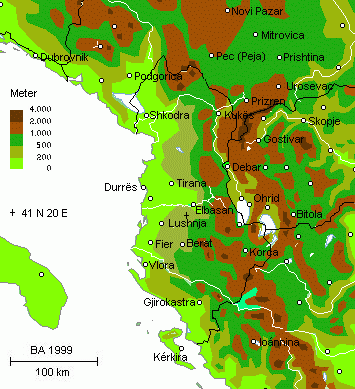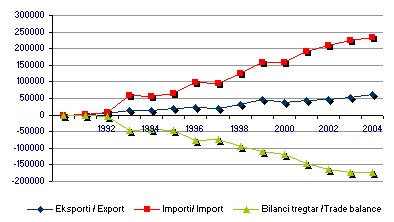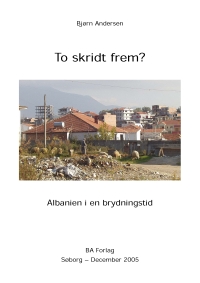Sidste Nyt fra Albanien, Kosóva og Makedonien
The Latest News from Albania, Kosóva and Macedonia
![]()
# 333 - 9' årgang - 27.04.2007
Version 1.0 •
PDF for printing •
Info om »Sidste Nyt« •
Tidligere numre
![]()
Udgiver:
Bjørn Andersen
Publisher:
Bjoern Andersen

Martti Ahtisaari og Albaniens UM Besnik Mustafaj mødtes 03.04.2007 for at diskutere Kosóvas fremtid.
Mustafaj indgav 25.04.2007 sin afskedsbegæring; den egentlige årsag kendes ikke endnu (mig bekendt).










